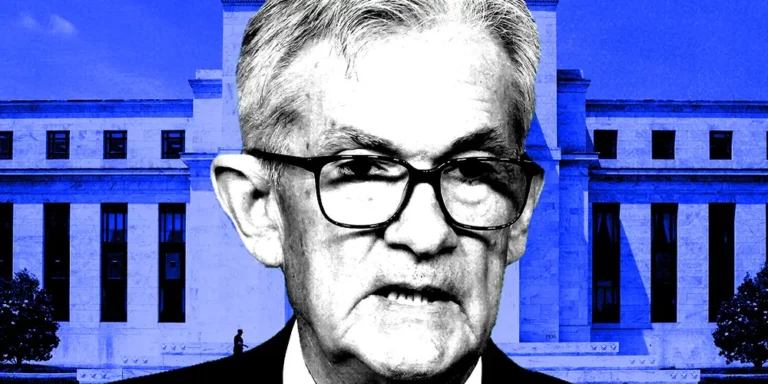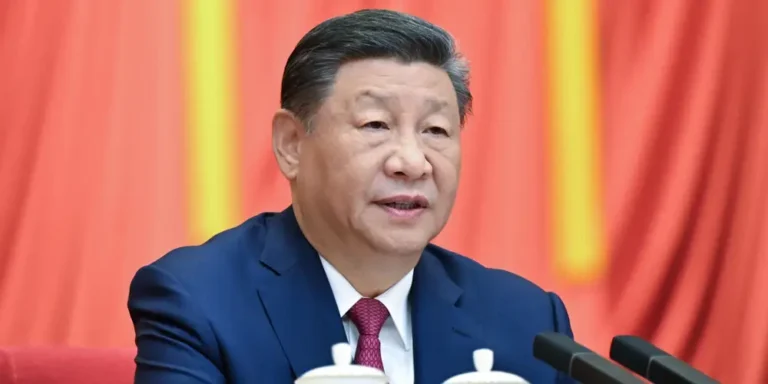‘There’s a significant number of upside opportunities’: A top-3% fund manager shares 9 of his favorite investments to make now — and why China’s economy is in big trouble

- Under Mark Costa, the Brandes International Small Cap Value Fund has had its best year in a decade.
- The leading fund manager is wary about China but sees many opportunities in international markets.
- Here are five stocks, two industries, and two countries that Costa is investing in now.
Mark Costa, a leading fund manager, works in one of the most difficult parts of the global market: the foreign small- and mid-cap value category.
Costa’s search through over 7,500 smaller companies listed on exchanges outside of the United States hasn’t always yielded huge returns, but he’s still been remarkably successful on a relative basis. Despite a modest 4.8% annual return over the last decade, his Brandes International Small Cap Value Fund (BISAX) has outperformed 91% of its peers.
2023 is shaping up to be one of the best years in the fund’s 11-year history, according to Costa. According to Morningstar, his foreign-focused small-cap value fund is up 25.3% year to date, compared to 6% for its index, putting it in the top 3% of its category.
Costa walked through his investing process earlier this year and how he’s outperformed by finding fairly valued stocks with strong balance sheets, consistent cash flow, and bankable revenue and earnings growth. Quality companies, he claims, are the key to outsized risk-adjusted returns.
Costa explained why he sees opportunities despite the litany of global market woes, including renewed economic weakness in China, in a mid-September interview with Insider. After all, global recession fears can actually motivate Costa to put his money to work.
“There are a lot of businesses that we can buy that aren’t impacted by a lot of major concerns, or maybe there will be some impact, but price already reflects a lot of those risks,” Costa told Insider. “Our sweet spot is when the market has concerns about top-down macro issues, and we can kind of navigate around that and take advantage of it.”
China’s growth is no longer envied around the world.
China’s second-largest economy came under intense scrutiny earlier this summer after its GDP and retail sales growth rates fell short of expectations, while its youth unemployment rate increased. China is also dealing with a looming real estate crisis as its top developers struggle to repay their massive debt loads.
Because of these concerns, strategists predict that China’s economy will disappoint in the coming year and beyond, despite the fact that its GDP remains high in comparison to the US and other mature economies.
Many market participants were caught off guard by China’s weak economic data, but Costa was not one of them.
“We’ve been concerned about China for years, and I believe the market has shifted to our side,” Costa said. “As a result, we’ve had very low exposure not only to China itself, but also to companies or industries that are exposed to China’s large fixed-asset investment growth.”
Costa believes that China cannot sustain the growth it has experienced over the last three decades indefinitely, especially given the plethora of political and geopolitical uncertainty it is currently facing, much of which is self-inflicted.
“What China has accomplished has been very impressive,” Costa said, “but development does not happen in a straight line.” “We never predicted that there would be a potentially significant downturn in China.” But we also realized that when you are out of equilibrium, there needs to be some sort of normalization.
“Our point of view isn’t to predict anything; it’s more of: There are better places to invest our capital,” Costa continued.
9 of the best international investments to make right now
While Costa avoids China, he is bullish on a number of stocks and sectors in emerging markets.
“There’s a significant number of upside opportunities that we’re finding in the marketplace,” Costa said. “I know there’s a lot of worry out there — a lot of big macro concerns that people have, whether it’s a China issue or interest rates and the impact they might have on consumers.”
“We’re definitely aware of those risks,” Costa added, “and we’re navigating the market with our eyes wide open.” But we’re discovering a lot of opportunities that, I believe, tend to emerge during times when people are concerned about things.”
Costa believes that some Chinese stocks, including those in Hong Kong, have been unfairly punished as a result of misconceptions or overreactions about how they will be affected if the country struggles.
First Pacific (FPAFF), a holding company with little China exposure but a massive presence in Indonesia, and Yue Yuen (YUEIY), a shoemaking behemoth with significant cost advantages that generates massive revenue outside of China, are two examples.
And not all Chinese firms are dangerous. Take, for example, payment processing equipment titan PAX Global (PXGYF), which operates in over 100 countries and is thus independent of the People’s Republic. Costa stated that the company has a strong balance sheet and is rapidly expanding revenue, but it is still regarded as a value stock, with a price-to-earnings (P/E) ratio of 5.2x.
“If you can dig deeper into the fundamentals, you can sort of understand the businesses and buy something where you’re getting paid for risk but not taking the risk,” Costa explained. “And that’s where we really thrive.” There are numerous examples of this in Europe and other parts of the world.”
Costa’s fund invests nearly three-quarters of its assets in developed markets equities, including Japan and the United Kingdom. The remainder are in developing countries.
This year, Japanese companies have roared back to life, quickly becoming a fan favorite of many fund managers for the way they’ve shown shareholders love by increasing dividends and share buybacks. Costa stated that companies in that country account for about 15% of his portfolio.
“We’ve found a couple of companies we really like and have been rotating capital from some of the names that have done well into names that are trading at bigger discounts,” Costa said of Japanese stocks. “We like to sell names that hit our intrinsic value — our thesis — and then rotate that capital back into, I believe, discounted names that give us the capital appreciation we’re looking for.”
Costa sees the best opportunities in Japan’s regional banking and healthcare industries. Japan-based banks are a value play because their tangible book values are heavily discounted. Rising interest rates will benefit financial firms by increasing their profitability, according to Costa. Japanese healthcare firms are a longer-term demographics play, as their services will be in high demand for many years due to Japan’s elderly population.
Companies in the United Kingdom, according to Costa, are also undervalued because they have been battered by political turmoil during and after Brexit. From the pandemic to the turnover of prime ministers to out-of-control inflation, the last few years have been difficult for regional stocks.
Rolls-Royce (RYCEY) of the United Kingdom and C&C Group (CCGPY) of Ireland are two UK-based stocks that stand out. Costa stated.
Rolls-Royce has long been a favorite of Costa’s and is currently the second-largest stock in his fund, despite the fact that its 215% rise in the last year means it is no longer a small-cap company. The fund manager stated that he will continue to invest in it because it has a dominant position in the wide-body commercial aircraft industry, as well as scale and strong returns on invested capital.
C&C Group is the fund’s sixth largest investor. According to the fund manager, the stock is reasonably valued, has a healthy balance sheet, and commands a commanding market share of the hard cider and beer markets in the United Kingdom, which is a potent combination.





